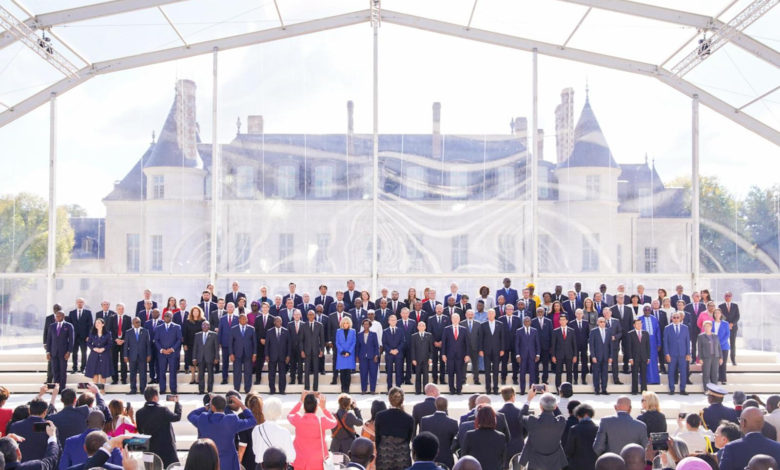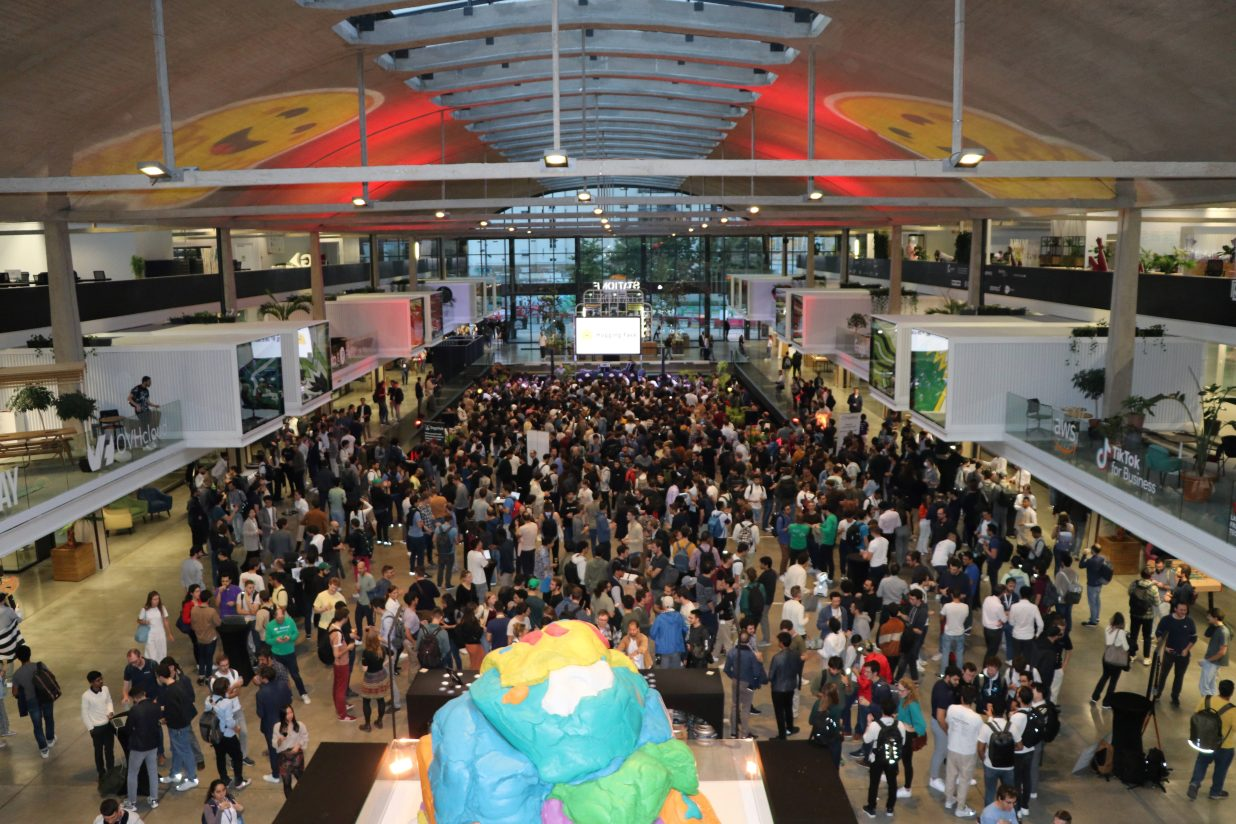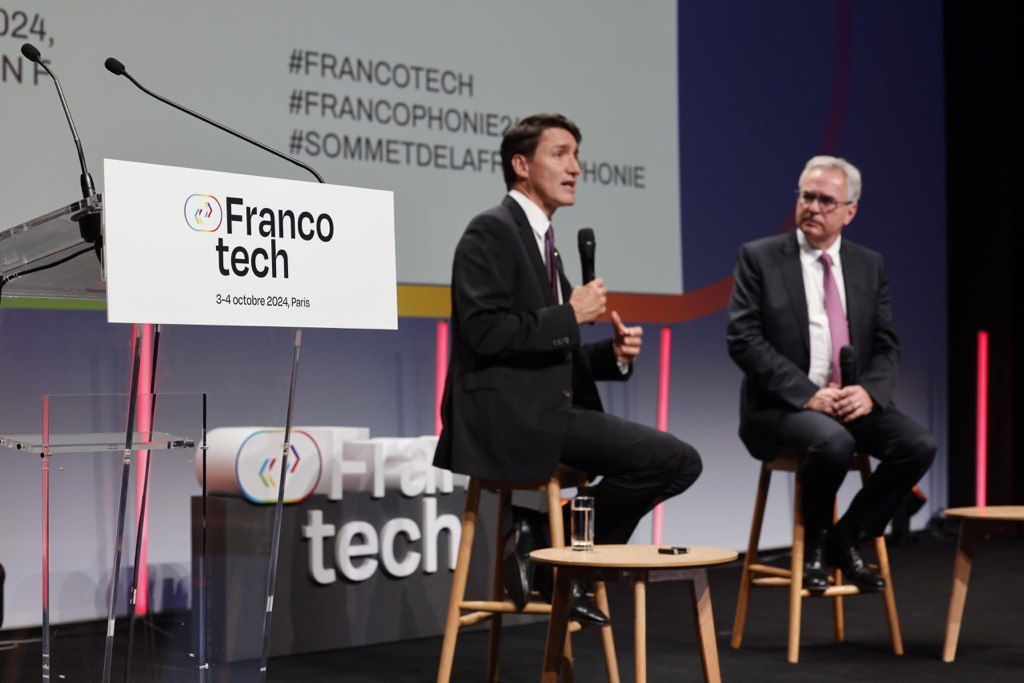2024 Francophonie Summit : diplomacy, economy, and digital
The 19th Francophonie Summit took place in France for the first time in 33 years, on October 4th and 5th, bringing together heads of state, entrepreneurs, and civil society actors around three major themes: innovation, digitalization, and culture. Meanwhile, strengthening the Francophonie's position on the international stage. Mission accomplished?

A few heads of state, including the presidents of Ghana, Benin, Rwanda, and the Democratic Republic of Congo—who did not appear as expected despite Emmanuel Macron’s hopes—some government leaders, like Canada’s Justin Trudeau and Morocco’s Akhannouch, and carefully selected guests, as well as closely supervised journalists… Villers-Cotterêts witnessed an unusual influx for the opening of the Francophonie Summit on October 4. The Francophone world, gathered in France for the first time in 33 years for a Summit that presented multiple stakes. Starting with strengthening the future of the French language. Ideally reaffirmed in the Francophonie City, established a year ago in Villers-Cotterêts, where in 1539, François I signed the ordinance of the same name, making French the official language (replacing Latin), marking the first step towards the unification of the French people around the French language, as recalled by French President Emmanuel Macron in his opening speech. Today, the French language connects over 300 million men and women worldwide, forming this Francophone space.
A language for entrepreneurship… a formidable lever of opportunities
A language that also aims to be « a language for entrepreneurship… a formidable lever of opportunities, » Macron declared, emphasizing that French is a strategic asset for young entrepreneurs. This theme was central to the Summit, under the telling subtitle “Entrepreneurship in French,” inviting people to create and innovate in French. This was demonstrated by a side event, FrancoTech, held on October 3-4, 2024, at Station F in Paris, dedicated to digital innovation in French. The event brought together nearly 2,000 professionals, delegations, and entrepreneurs from nearly 100 countries. Numerous figures from the digital world were present, including leaders from major platforms like Meta, TikTok, and X, as well as prominent figures from Francophone tech, such as Xavier Niel. FrancoTech served as a platform to promote innovation in French, foster business meetings, and launch major initiatives like the Francophone Intellectual Property Alliance. The event also gave Emmanuel Macron the opportunity to call on digital leaders to create, innovate, and do business in French.
Similarly, the cultural festival « Remake the World, » devoted to the cultural diversity of Francophone countries, brought together artists, writers, musicians, and intellectuals from all regions of the Francophone world.
Francophonie is an essential diplomatic and political player, present in 13 capitals around the world

Major highlights of the Summit reaffirmed the Institution’s objectives: strengthen its position on the international stage, develop economic relations, and harness the potential of digital technology.
« Francophonie is an essential diplomatic and political player, present in 13 capitals around the world, » affirmed Louise Mushikiwabo, Secretary-General of the International Organisation of La Francophonie (OIF), taking advantage of this platform to outline her achievements. « With conviction and determination, I have consolidated the modernity of our organization, » she stated, recalling her priorities: youth and women, emphasizing that « our diversity is our strength. »
Africa, the central pillar of Francophonie
Africa plays a central role in the Francophonie, representing nearly 60% of the world’s Francophones. This will increase significantly as the world is expected to have over a billion Francophones by 2065. This continental dynamic is a major asset for the future of the French language. With impressive population growth and a rising number of young people, Africa is set to become the beating heart of the Francophonie. African countries like Rwanda, Benin, and the Democratic Republic of Congo are continuously strengthening their influence within this linguistic and cultural community. The continent is not only a source of Francophone speakers but also a hub of innovation, particularly in the digital and cultural sectors, as Louise Mushikiwabo highlighted.
An appeal to innovate in French

The Summit was an opportunity to fulfill several commitments. Starting with the Villers-Cotterêts Call, addressed to major digital platforms, inviting them to create and innovate in French. « It is also in French that we must think about innovation and artificial intelligence, » Macron declared, looking ahead to the next AI summit scheduled for February 2025. This initiative is part of a clear desire to place French at the heart of tomorrow’s technologies.
Another commitment is the creation of the International College of Villers-Cotterêts, planned for 2025, which will train Francophone teachers and offer research residencies in didactics. This center of excellence aims to improve the quality of French-language education worldwide.
Likewise, the launch of the Francophone Intellectual Property Alliance was announced. This network will facilitate patent filing in French, thus strengthening the influence of the language in the field of technological innovation. Additionally, an international mobility program, named PIMEF, will allow many young Francophones to benefit from internships and job opportunities throughout the Francophone world.
Emmanuel Macron also stressed the importance of the French language as a driver of economic attractiveness. « With 330 million speakers, our linguistic space will make the Francophonie an economic asset. » A strong message was addressed to the youth, encouraging them not to limit themselves to English for international trade.
Francophonie is not France-Afrique, it is neither hexagonal nor African; it is a common good of these 88 member countries
Without opposing English, as Louise Mushikiwabo emphasized, promoting multilingualism, like her country, Rwanda. She also reminded, « And no, Francophonie is not France-Afrique; it is neither hexagonal nor African; it is a common good of these 88 member countries. » While ensuring the vitality of the 54-year-old Institution, she acknowledged its limitations. « We are aware that our actions remain modest… limited by your policies. »
Meanwhile, several states and governments submitted requests for membership or changes to their status at this Summit. Among the new observers are Angola, Chile, Nova Scotia (Canada), French Polynesia (France), and Saarland. Additionally, countries like Cyprus and Ghana saw their status upgraded to full members, highlighting the growing appeal of the OIF.
Finally, the Summit provided an opportunity to reflect on the added value of the OIF in managing crises affecting the Francophone world. The discussions resulted in the adoption of three major texts, including the Summit Declaration, the Declaration of Solidarity with Lebanon, and the Resolution on Crises in the Francophone World.






